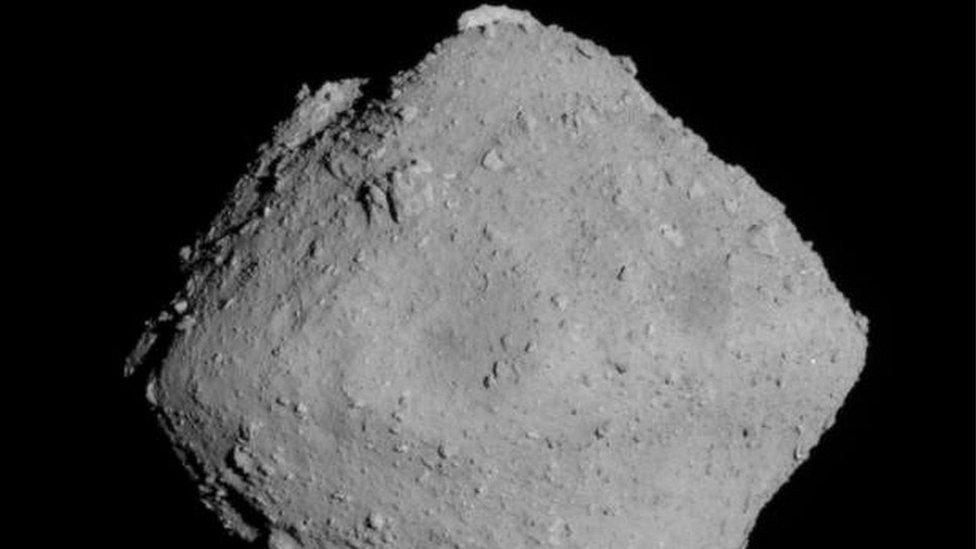Japan's New Emperor Prince Naruhito: Everything you need to know
- Published
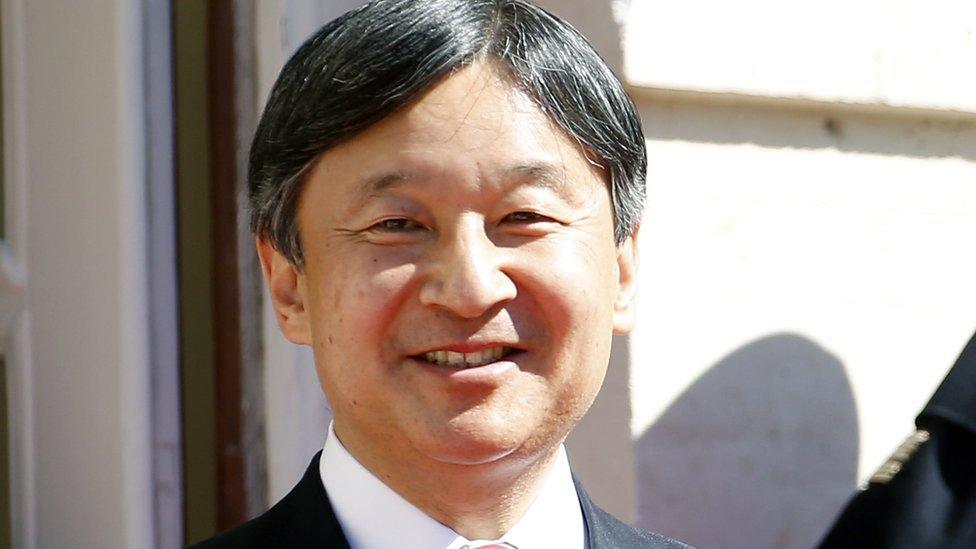
Crown Prince Naruhito, Japan's new Emperor
Japan's Emperor, Crown Prince Naruhito has given his first speech. He talked about his hope for happiness and world peace.
The new emperor officially started on 1 May when Crown Prince Naruhito took over the Chrysanthemum Throne and began a new era for the country.
The event is a massive deal because to become the emperor Prince Naruhito's dad, Emperor Akihito, had to give up the throne.
Now that may be a move you'd think would be pretty simple but it's not. Emperor Akihito, will be the first Japanese ruler in more than 200 years to give up ruling or abdicate.
Japanese law does not have rules for abdication so the Japanese government had to make a special change to the law to allow the 85 year-old to step-down.
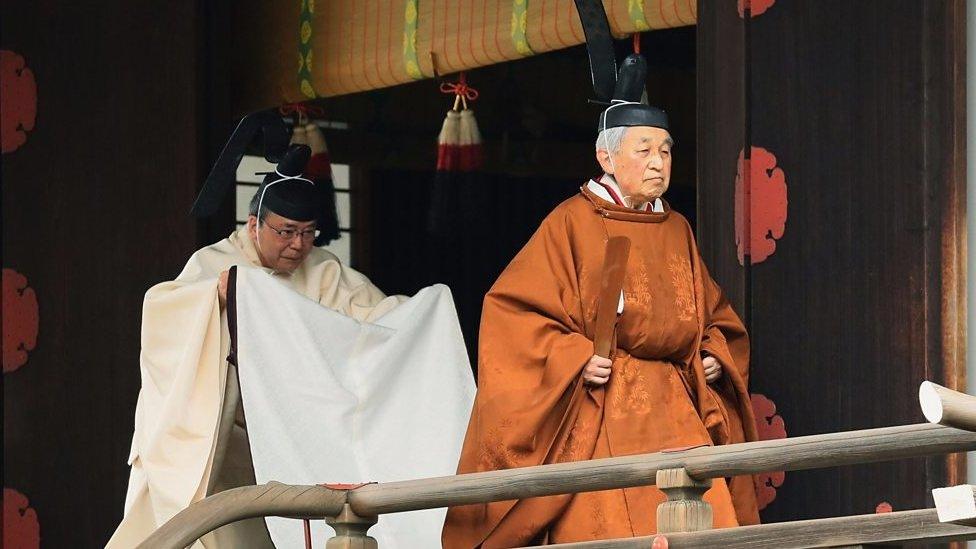
Elaborate ceremonies will mark the occasion as Emperor Akihito hands the throne to his son
Why is the Emperor stepping down in the first place?
Emperor Akihito voluntarily chose to step down from his role - that's what abdication means. Now that's not the norm as emperors are usually succeeded only after the previous one dies.
But this is not the case in this instance because Emperor Akihito said he had fears his age and health were making it hard for him to complete his official duties.
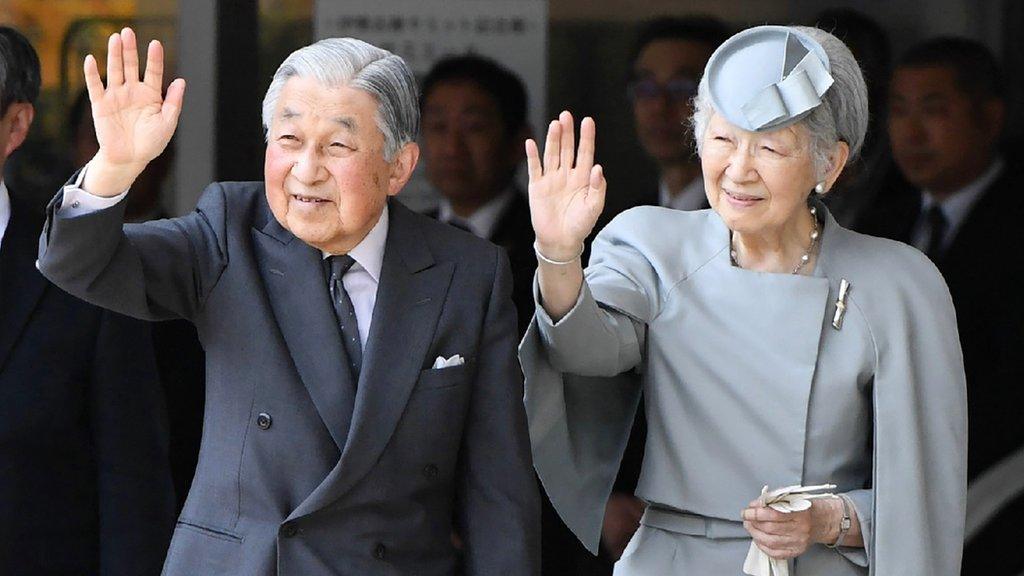
Emperor Akihito and his wife
Who is Prince Naruhito?
We actually know quite a lot - Japanese tradition means that future emperors could not live with their families but instead must be raised by their 'subjects'. That changed with Prince Naruhito because a decision was made for him to stay with his family.
The tradition aimed to teach future emperors to be more considerate of other people but now a family life is seen as just as important.
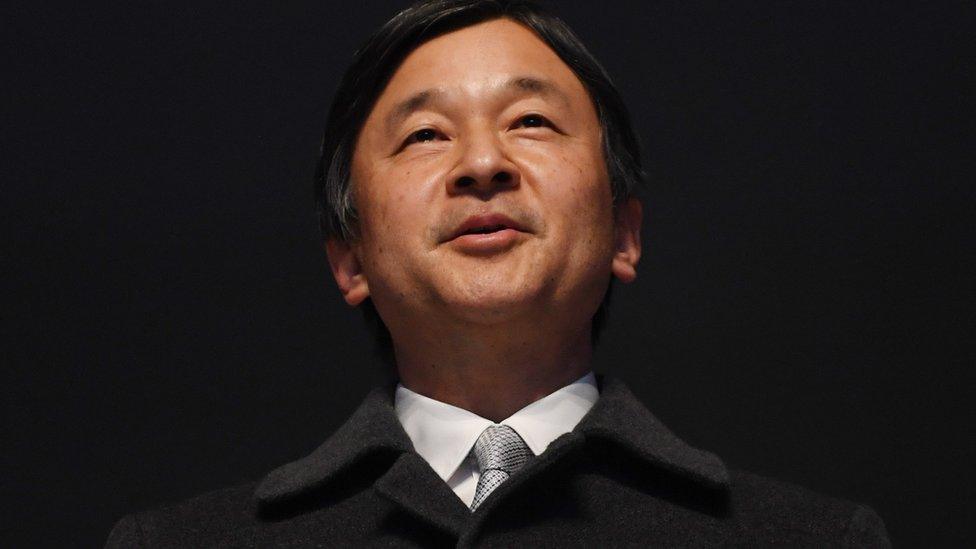
Prince Naruhito
Prince Naruhito has also spent some time in the UK studying at Oxford University's Merton College from 1983.
What's the deal with women empresses?
There have been eight female emperors in Japan's history but in 1889 the Japanese government decided to make a new law that meant that women could no longer sit on the throne.
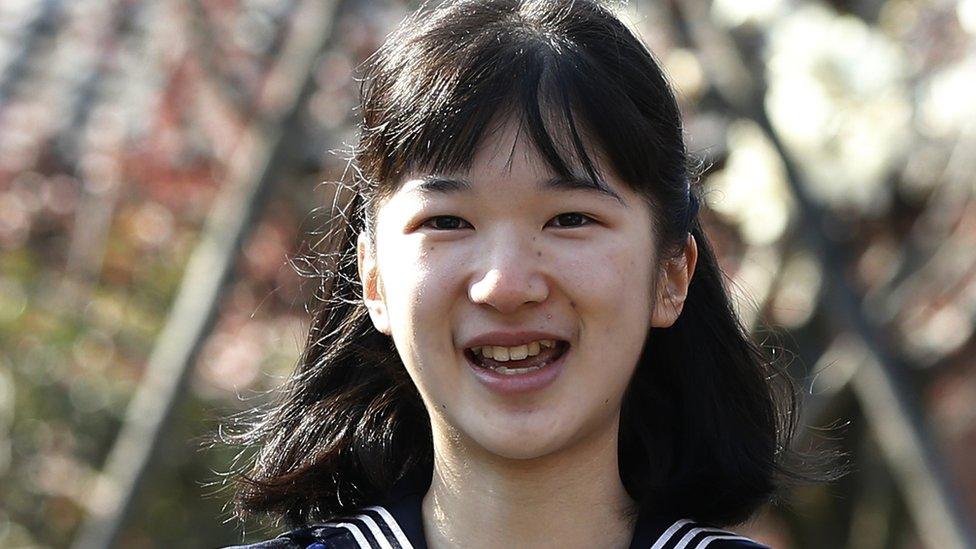
Prince Naruhito's only child, Princess Aiko
This means that Prince Naruhito's only child, a daughter called Princess Aiko will never be emperor. Instead the line of succession will pass to Prince Naruhito's younger brother and then on to his nephew.
The Japanese government started the process of amending the law in 2004 when it was feared there would be no male heirs to continue the imperial family's line. But that process was stalled when Prince Naruhito's nephew Prince Hisahito was born in 2006.
What does Japan's new imperial era mean?
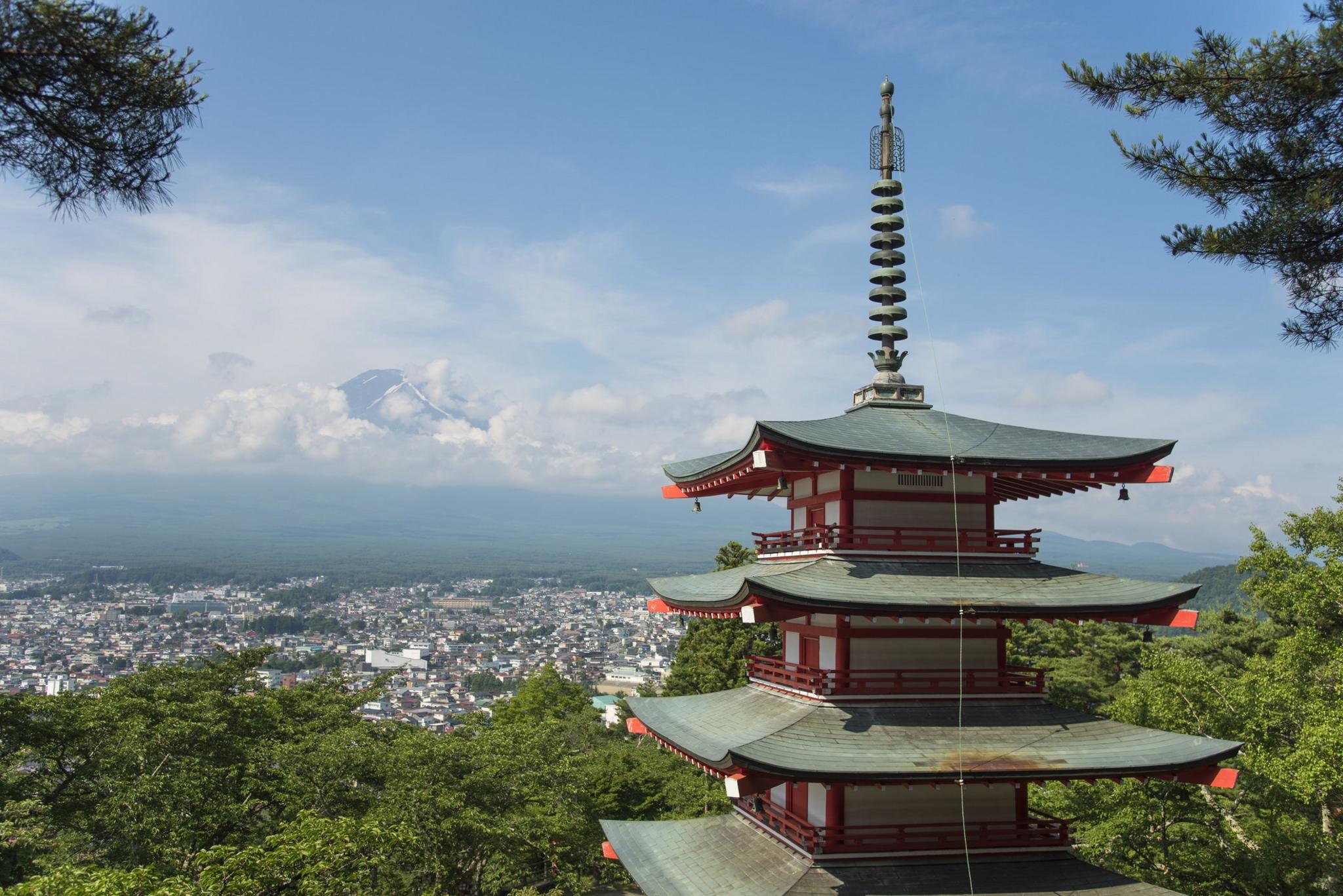
The name of the new imperial era means "beautiful harmony"
When Crown Prince Naruhito becomes emperor there will be a new era called Japan's Reiwa era.
The name of the new imperial era, means "beautiful harmony".
An era is how people in Japan count time and it changes depending on who is on the throne.
What does it mean for the country?
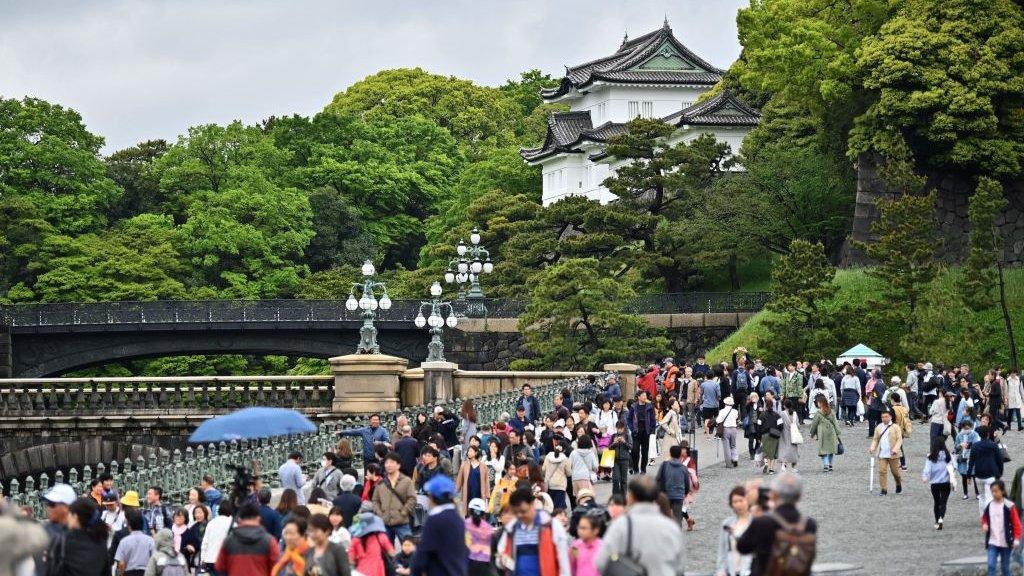
Many people gathered outside the Imperial Palace in Tokyo
The role of Japan's emperor has been quite ceremonial, there is a focus on connecting with people and meeting important foreign officials.
But the new prince may want to push for change. He will be the first emperor born after World War Two, and many may expect him to want different things for his country but no one is quite sure what sort of emperor he will be.
For now the country is taking a ten-day holiday to mark the abdication of Emperor Akihito.
- Published23 March 2021

- Published27 October 2018
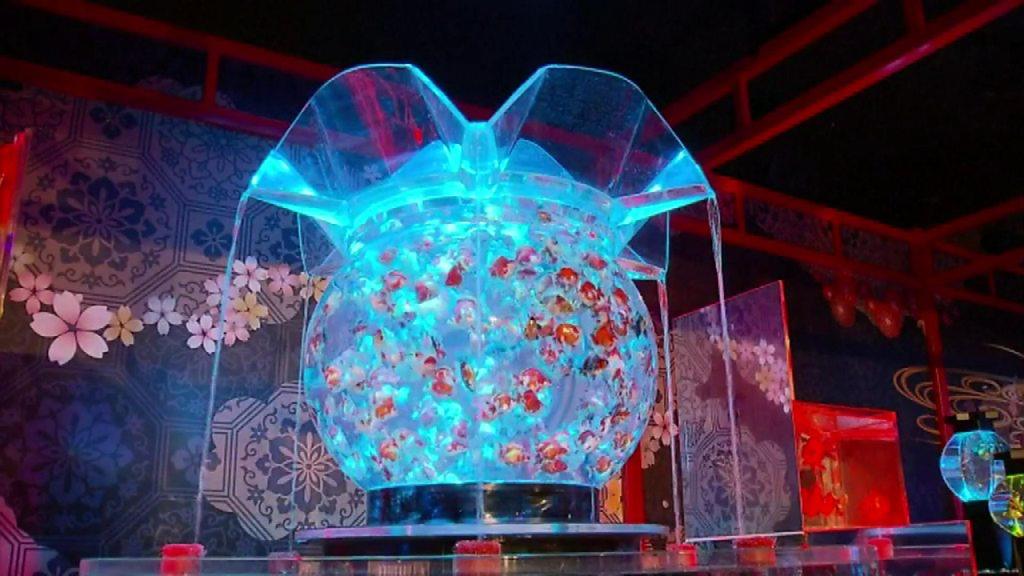
- Published21 February 2019
